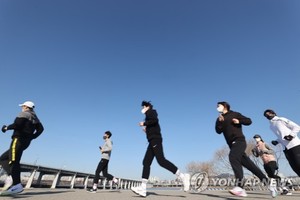
[데일리시사닷컴]With the recent cold winter weather and the increasing amount of time to live indoors due to the influence of Corona 19, interest in diet is increasing due to weight gain due to lack of exercise.
If you have to go on a diet for health, you need to be careful about cholecystitis, which may be caused by a rapid diet.
According to data from the Health Insurance Review and Assessment Service, the number of cholecystitis patients in 2019 was 56,000, a 31% increase compared to 42,000 in 2016.
Cholecystitis is a disease caused by a secondary bacterial infection following the obstruction of the gallbladder duct. The most common symptom of acute cholecystitis is pain in the right upper abdomen or Myeongchi area that occurs suddenly.
In the case of acute cholecystitis, the pain does not disappear, and the pain is persistent and becomes increasingly severe. Pain can be relieved to some extent by analgesics, but it is not completely relieved and may radiate toward the right shoulder or scapula.
Professor Shin Yong-chan of surgery at Ilsan Paik Hospital said about the relationship between diet and cholecystitis, “Generally, a weight loss of 1.5 kg or more per week increases the risk of gallstones. According to overseas studies, it is reported that gallstones occur with a 30-70% probability when a highly obese patient undergoes obesity surgery and rapidly loses weight through diet.”
“The mechanism of gallstone formation is due to an increase in cholesterol secretion into the bile duct, an increase in mucus in the gallbladder, and a decrease in motility. Since it is a cholesterol gallstone, prophylactic administration of ursodeoxycholic acid can lower the probability of gallstones.” And explained.
In order to prevent cholecystitis, “First, you need a regular diet. It is also important to minimize high-calorie foods, foods high in cholesterol, fat, and carbohydrates, and take the reported nutrients that reduce the risk of gallbladder gallstones such as unsaturated fat, nuts, dietary fiber, vitamin C, and calcium.”
“Because not only obesity, but also rapid weight loss is a risk factor for the occurrence of gallbladder gallstones, it is better to refrain from a rapid diet and maintain an appropriate weight through regular exercise.”
In recent years, the number of patients is increasing in the younger generation. The higher the body mass index (BMI), regardless of sex, the higher the prevalence of gallbladder gallstones, and the risk increases especially when there is abdominal obesity or obesity from a young age.
In the case of highly obese women, the probability of gallstone occurrence is 7 times higher than that of other control groups (groups with no high obesity or less than moderate obesity), and in the West, women are known to have a prevalence of about twice that of men. It is known that taking estrogen, a contraceptive for use, doubles the risk of gallstones.
